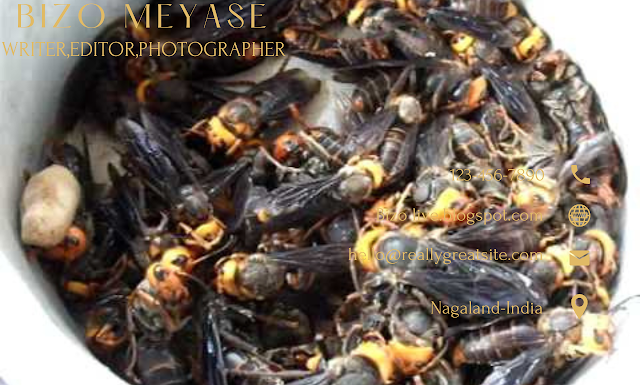Introduction:
In the world of unusual foods, hornet bees might not be the first thing that comes to mind. But these buzzing insects actually have a lot to offer when it comes to nutrition and health benefits. So, let's dive into why munching on hornet bees might not be such a crazy idea after all.

Meet the Hornet Bee
Hornet bees, also known as giant hornets or killer hornets, are big, bold insects known for their striking appearance and powerful sting. Despite their intimidating reputation, they're actually quite fascinating creatures. They live in colonies, just like regular bees, with a queen bee leading the show and worker bees doing all the busy work.
What's on the Menu?
Now, you might be wondering, what exactly do hornet bees have to offer in terms of nutrition? Well, it turns out, quite a lot:
Protein Boost:
Hornet bee larvae are packed with protein, which is essential for building and repairing muscles. They've got all the amino acids your body needs to stay strong and healthy.
Vitamins and Minerals:
Alongside protein, hornet bee larvae also provide important vitamins and minerals like B vitamins, iron, zinc, and calcium. These help keep your body running smoothly and your immune system in tip-top shape.
Good Fats:
While they're not as fatty as some other insects, hornet bees still contain healthy fats like omega-3 and omega-6 fatty acids. These are great for your heart, brain, and overall well-being.
Antioxidant Power:
Some compounds in hornet bee larvae act as antioxidants, which help protect your body from damage caused by harmful molecules called free radicals. Health Benefits Beyond Nutrition: But wait, there's more! Hornet bees aren't just good for filling your belly—they also have some surprising health benefits:
Pain Relief:
Believe it or not, a small amount of hornet bee venom can actually help ease pain and inflammation. It's been used in traditional medicine for centuries to treat conditions like arthritis and rheumatism.
Boosted Immunity:
Components in hornet bee venom can give your immune system a little kick, helping your body fight off infections and stay healthy.

Faster Healing:
Certain compounds in hornet bee venom have antimicrobial properties, meaning they can help prevent infections and speed up the healing process for cuts and wounds.
Respectful Harvesting and Conservation Of course, it's important to harvest hornet bees responsibly and sustainably. We need to make sure we're not harming the environment or putting these important insects at risk. That means collecting larvae without disrupting the colony and being mindful of the ecosystem they're part of.
In Conclusion:
While the idea of eating hornet bees might sound strange at first, they're actually a nutritious and beneficial addition to your diet. From their protein-packed larvae to the healing properties of their venom, hornet bees offer a lot to explore.
So, next time you're feeling adventurous, why not give them a try? Just remember to approach them with respect and appreciation for the wonders of nature.
Why should we consider eating insects (entomophagy)?
Entomophagy offers a sustainable protein source that requires fewer resources such as land, water, and feed compared to traditional livestock.
Insects are highly nutritious, rich in protein, healthy fats, vitamins, and minerals. Embracing entomophagy can help address food security and environmental challenges.
Are all insects safe and suitable for consumption?
Not all insects are safe for consumption, as some may carry toxins or pathogens harmful to humans.
However, many edible insect species have been identified and consumed safely for centuries across various cultures.
It's crucial to source insects from reputable suppliers and ensure they are raised and prepared in hygienic conditions to mitigate any health risks.
How can insects be incorporated into our diets?
Insects can be incorporated into diets in various ways, including as whole insects, ground into flour for baking, or processed into products like protein bars and snacks.
They can also be cooked and seasoned to suit different culinary preferences.
As awareness of entomophagy grows, innovative recipes and products are emerging, making it easier for individuals to incorporate insects into their diets seamlessly.




